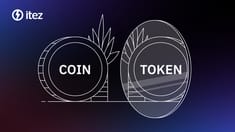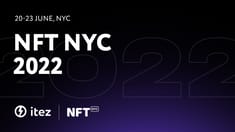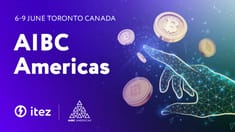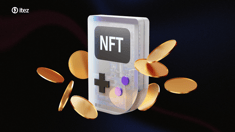In recent days, the largest decentralised exchange (DEX) Uniswap has been in the centre of discussions. On October 14, the media and X (formerly Twitter) users were attracted by the information about the introduction of Know Your Client (KYC) procedure in the forthcoming 4th version of the protocol. Let’s find out whether it is true and what is wrong with this update.
By the way, on October 17, Uniswap got in the spotlight again, as it introduced a 0.15% fee fee for swaps in some trading pairs. Find out about this solution in our article: Uniswap introduces swap fee of 0.15% for certain tokens.
What’s the buzz about KYC on Uniswap
On October 14, a blogger under the nickname @yourfriendSOMMI caught users’ attention with a loud statement: "Uniswap is bringing out KYC Verification in the form of a hook for Uniswap v4". The tweet quickly went viral and raised concerns among crypto community members.
The so-called hooks are customised add-ons that provide pool creators with the flexibility to incorporate some features into their systems. These hooks can be compared with the way extensions work in browsers, allowing users to create and use additional functions independently of the main developers of a product.
Uniswap is preparing to launch its next major upgrade, Uniswap version 4 (v4). By now, the exact date for its release has not been revealed yet as it depends on Ethereum's Cancun upgrade.
With the launch of v4, Uniswap will introduce 74 hooks, including the KYC option for pool creators and various other hooks. To learn more, you can visit a special section on its website.
A brief overview of how DEXs operate
This development has left some community members disappointed, but the news is not that bad as it may seem. To comprehend the issue, we need to delve into the mechanics of decentralised exchanges.
Uniswap stands as one of the oldest and most extensive DEXs. Trading on Uniswap occurs via smart contracts configured as pools, and anyone can assume the role of a pool creator. These pools store pairs of tokens that users can trade and initiate a "swap".
The swap process unfolds like this:
🙋 You have got 500 USDT and aim to swap it for ETH;
💰 ETH/USDT pool is available on Uniswap;
🤝 By connecting your wallet through the Uniswap interface, you can execute the swap at the current pool rate, which may deviate from the official exchange rate due to the specific token ratio in this particular pool.
The underlying technology of KYC on Uniswap
The KYC hook comes into play during the third stage of the swap on DEX when the user connects their wallet to a specific pool. However, this verification method differs from regular centralised exchanges (CEX) KYC procedures.
CEX KYC typically implies identity verification using scans of official documents like passports, driving licences, etc. On the other hand, KYC on a DEX is basically a code that checks if the address wishing to swap has a special non-fungible token (NFT). If the address is confirmed to possess the NFT, the swap is performed.
However, to enable this, there should be an entity that verifies people and assigns them the relevant NFT, which inevitably leads to centralisation.
This functionality may not be exclusively for KYC purposes; it can also serve as a kind of VIP pass. For instance, the author of some NFT collections might want to establish a token pool for ERC-20 trading and give access only to NFTs holders.
Some users have also noted that project developers could possibly employ this hook to avoid regulatory pressure and limit investments to verified users.
The duality of Uniswap KYC hook solution
On the one hand, the assertion that DEX is introducing mandatory KYC is simply not true as of today. On the other hand, DeFi investor and analyst Adam Cochran highlights that such tools are "slippery slopes". The very fact that such restrictive functionality could be implemented is dangerous for Uniswap.
After all, there is no guarantee that Uniswap will not go along with the regulators in case of pressure. Especially now that it turns out that adding such a feature is relatively straightforward. According to Adam Cochran, while "flexible tooling is fine", "we also need an ironclad system" that will be resistant to outside coercion attempts.
You might also like:








